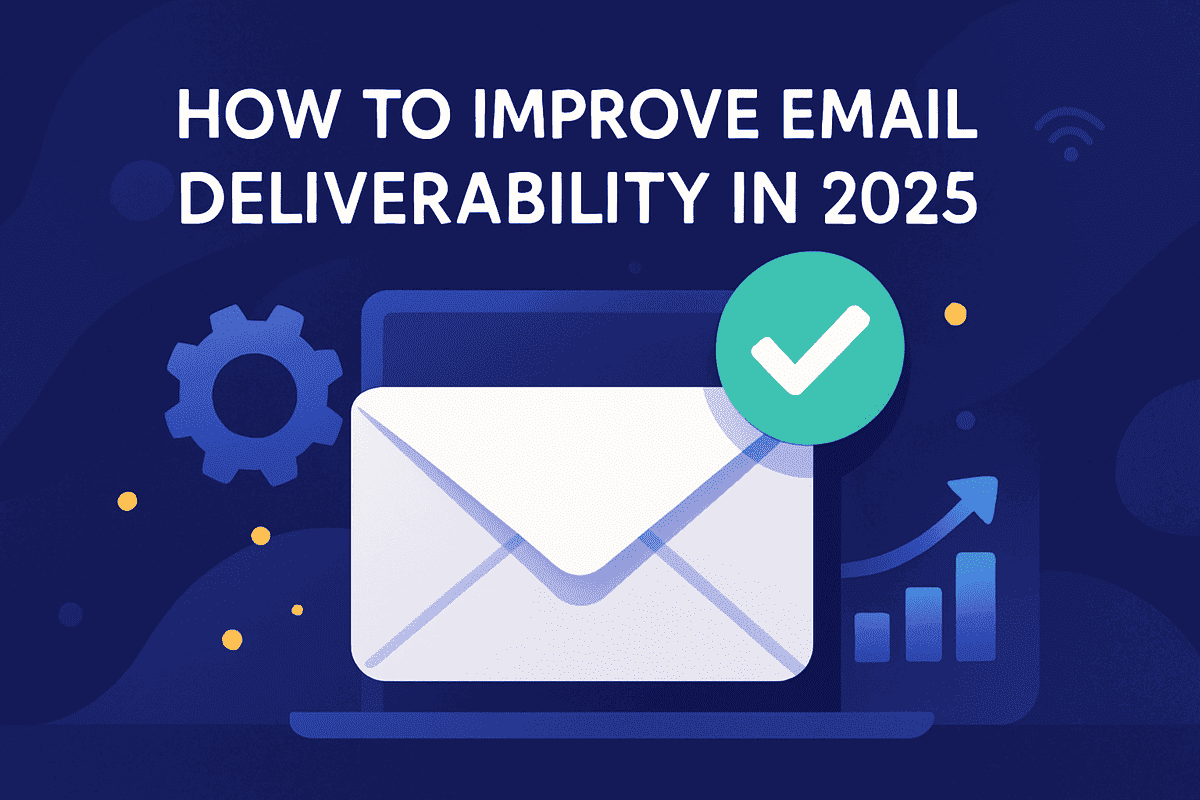Email deliverability is the unsung hero of any effective email marketing campaign. In 2025, when inboxes have never been more congested, getting your emails where they need to be is paramount.
This guidebook is packed with real-world tips written specifically for American small and medium-sized business (SMB) owners, entrepreneurs, and startup communities who want to maximize their email deliverability.
Understanding Email Deliverability

Email deliverability is the ability of your emails to reach the inbox of the recipient instead of spam flagging or bouncing. It relies on several factors:
- Sender reputation
- Authentication systems
- Recipient engagement
Why It Is Important in 2025
With increased spam filters and better email security practices, having your emails reach the inbox is harder than ever.
Poor Engagement
Emails that don't reach inboxes can't engage your audience
Lost Business
Missed opportunities for sales and conversions
Brand Damage
Poor deliverability can harm your sender reputation
The Top Methods to Enhance Deliverability
Authenticate Your Emails
Authentication using techniques like SPF, DKIM, and DMARC confirms that your emails come from a trusted source, making them less likely to land in spam.
Clean Email List
- • Remove unsubscribes and non-existent email addresses automatically
- • Use double opt-in to ensure subscriber intent
Monitor Engagement Metrics
Track open rates, click-through rates, and bounce rates consistently. High engagement signals to email providers that your content is valuable.
Optimize Email Content
- • Avoid spam trigger words and phrases
- • Ensure fast loading and mobile compatibility
- • Personalize content for relevance
Warm-Up New IP Addresses
When using a new IP address, gradually increase your sending volume to establish a positive sender reputation.
Most Frequently Made Mistakes to Avoid
-
Sending Unauthenticated Mail
Not implementing proper authentication protocols
-
Using Purchased Lists
Sending to purchased or stale email lists
-
Ignoring Metrics
Not tracking and acting on engagement metrics
-
Heavy Emails
Adding too many images or bulky file attachments
Tools and Resources
Email Test Tools
Software that helps you test your emails for spam triggers and rendering issues
List Cleaning Services
Tools to identify and remove invalid or inactive email addresses
Analytics Platforms
Software to monitor engagement levels and understand email performance
Frequently Asked Questions
How frequently do I need to clean my email list?
You ought to clean your email list at least every 3-6 months, or as regularly as you see your engagement rates decline.
How do SPF, DKIM, and DMARC differ from each other?
- SPF: Specifies IP addresses permitted to send emails on your behalf
- DKIM: Puts a digital signature on your emails, authenticating them
- DMARC: Provides email providers direction on how to handle emails that don't pass SPF or DKIM authentication
My e-mail ends up in the spam folder. Why?
It may be due to low authentication, low open rates, spam content, or sending to dead email addresses.
Maintaining Email Deliverability is an Ongoing Process
Email deliverability requires consistent effort, monitoring, and adherence to best practices. With these strategies in your toolkit, SMB marketers and business stakeholders will be better positioned to optimize email campaign performance, ensure messages reach their intended audience, and achieve desired outcomes.

